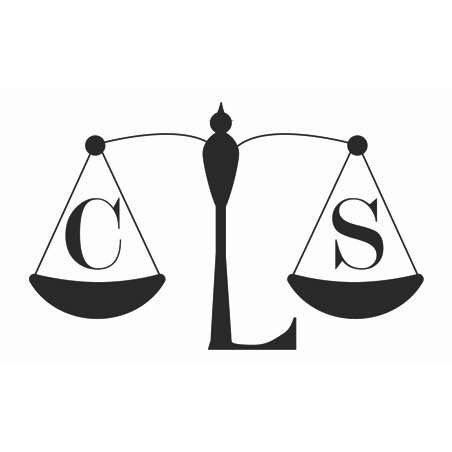Best International Trade Law Lawyers in Sanaa
Share your needs with us, get contacted by law firms.
Free. Takes 2 min.
List of the best lawyers in Sanaa, Yemen
About International Trade Law in Sanaa, Yemen
International Trade Law in Sanaa, Yemen, is governed by a mix of national legislation, international agreements, and customary practices. Yemen's strategic position along the Red Sea and the Gulf of Aden makes it a significant player in regional trade. This law area encompasses rules and practices concerning the exchange of goods and services across international borders. The legal framework is designed to facilitate smooth trade operations while protecting the interests of local participants. Yemen is a member of several international organizations, which means that its trade laws are often influenced by agreements like those from the World Trade Organization (WTO) and other regional trade agreements.
Why You May Need a Lawyer
There are numerous scenarios where seeking legal assistance in International Trade Law might be necessary. Businesses dealing with imports and exports may require advice concerning customs regulations or assistance with dispute resolutions. Legal help is crucial when navigating compliance issues, such as ensuring product standards and certifications align with international rules. Additionally, companies entering partnerships or bilateral trade agreements may need a lawyer to draft and review contracts ensuring legal and operational objectives are met. If you face regulatory penalties or require representation in trade disputes, professional legal expertise becomes indispensable.
Local Laws Overview
Yemen's local laws in International Trade focus on customs duties, import/export regulations, investment laws, and trade sanctions. Companies operating in international trade must adhere to rules set by the Yemen Customs Authority, which dictate how goods are imported or exported. The Ministry of Industry and Trade plays an essential role in regulating trade activities by promoting domestic industries and balancing imports. Familiarity with the country's Investment Law is also critical for foreign investors, providing significant insights into incentives available for trade and investment in Yemen.
Frequently Asked Questions
How important is it to understand local customs regulations?
Understanding local customs regulations is crucial in international trade as it affects the efficiency of import and export operations. Knowledge in this area helps prevent delays and penalties.
What role does the Yemen Ministry of Industry and Trade play?
This ministry regulates trade and industry, ensuring growth, sustainability, and international compliance, making it pivotal for businesses within the trade sector.
Are there specific laws governing foreign investments in Yemen?
Yes, Yemen has laws that provide guidelines and incentives for foreign investors. These laws are intended to encourage foreign investment while protecting national interests.
What are the common legal challenges faced in international trade?
Common challenges include navigating regulatory compliance, dealing with trade disputes, managing cross-border taxation, and ensuring product standards and certifications.
What is the significance of trade agreements for businesses in Yemen?
Trade agreements can provide businesses in Yemen with broader market access, reduced tariffs, and help establish protocols for fair trade practices, influencing profitability greatly.
How can businesses ensure compliance with international standards?
Working closely with legal experts who specialize in international standards can help businesses comply with necessary certifications and regulations.
What documentation is typically required for export and import activities?
Documentation required includes commercial invoices, certificates of origin, bills of lading, packing lists, and customs declarations. Each document plays a role in smooth customs clearance.
How might geopolitical situations affect trade laws in Yemen?
Geopolitical changes can impact trade through sanctions, altered agreements, or changes in diplomatic relationships, necessitating a need for updated legal counsel.
What should I consider when forming international trade contracts?
Key considerations include compliance with applicable laws, dispute resolution mechanisms, enforceability, terms of delivery, and payment terms.
How can disputes in international trade be resolved?
Disputes can be resolved through negotiation, arbitration, or litigation in line with the contractually agreed methods. Engaging a legal expert simplifies the resolution process.
Additional Resources
For further assistance, individuals may contact the Yemen Chamber of Commerce, the General Investment Authority, and international trade organizations. Consulting with law firms specializing in Yemeni trade law is also advisable. Additionally, accessing publications and resources from regional economic bodies like the Arab League might offer valuable insights.
Next Steps
If you require legal assistance in International Trade Law, consider engaging with a legal expert specializing in this field. Begin by consulting with local law firms demonstrating proficiency in trade law. Gather documentation related to your trade activities and prepare to discuss the specifics of your situation clearly. Consistent communication and cooperation with legal professionals will ensure a better understanding and navigation of the international trade laws applicable to Sanaa, Yemen.
Lawzana helps you find the best lawyers and law firms in Sanaa through a curated and pre-screened list of qualified legal professionals. Our platform offers rankings and detailed profiles of attorneys and law firms, allowing you to compare based on practice areas, including International Trade Law, experience, and client feedback.
Each profile includes a description of the firm's areas of practice, client reviews, team members and partners, year of establishment, spoken languages, office locations, contact information, social media presence, and any published articles or resources. Most firms on our platform speak English and are experienced in both local and international legal matters.
Get a quote from top-rated law firms in Sanaa, Yemen — quickly, securely, and without unnecessary hassle.
Disclaimer:
The information provided on this page is for general informational purposes only and does not constitute legal advice. While we strive to ensure the accuracy and relevance of the content, legal information may change over time, and interpretations of the law can vary. You should always consult with a qualified legal professional for advice specific to your situation.
We disclaim all liability for actions taken or not taken based on the content of this page. If you believe any information is incorrect or outdated, please contact us, and we will review and update it where appropriate.









